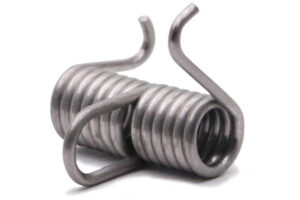Enhancing Reliability with Torsion Springs in Industrial Applications
 Torsion springs are mechanical components widely utilized in countless industrial applications due to their ability to store and release rotational energy. These springs operate under torsional stress, which allows them to exert torque when twisted or rotated. This article aims to explore the concept of torsion spring reliability, highlighting its significance in various industries and discussing key factors that contribute to its enhanced performance.
Torsion springs are mechanical components widely utilized in countless industrial applications due to their ability to store and release rotational energy. These springs operate under torsional stress, which allows them to exert torque when twisted or rotated. This article aims to explore the concept of torsion spring reliability, highlighting its significance in various industries and discussing key factors that contribute to its enhanced performance.
Advantages of Torsion Springs in Industry:
1. High Durability: Torsion springs are designed to withstand repeated cycles of twisting and untwisting without compromising their functionality. They possess excellent resistance to fatigue, ensuring longevity and reliability in demanding industrial environments.
2. Precise Torque Control: Torsion springs offer precise control over torque output, making them ideal for applications where consistent and accurate rotational force is required. This enables smooth and reliable operation, reducing the risk of machinery malfunction or failure.
3. Design Flexibility: Torsion springs can be custom-engineered to meet specific application requirements, including parameters such as size, shape, materials, and torque characteristics. This versatility enhances design flexibility and enables the optimization of performance and reliability for a wide range of industrial applications.
4. Cost-Effective Solution: Torsion springs provide a cost-effective solution due to their efficient manufacturing process and long service life. Their reliability ensures reduced downtime, maintenance, and replacement costs, making them an attractive choice for industries seeking to enhance productivity while minimizing expenses.
Factors Influencing the Reliability:
1. Material Selection: The choice of material greatly impacts the reliability of torsion springs. Materials with high tensile strength, fatigue resistance, and corrosion resistance, such as stainless steel and carbon steel alloys, are commonly used to ensure longevity and optimal performance.
2. Spring Design: Proper engineering of torsion springs, considering factors such as wire diameter, coil pitch, number of coils, and helix angle, is crucial in achieving high reliability. Precision design minimizes stress concentration, prevents premature failure, and enhances the overall durability of the springs.
3. Surface Treatment: Applying suitable surface treatments, such as plating or coating, can significantly improve torsion spring reliability by enhancing corrosion resistance and reducing friction. These treatments protect the spring from environmental factors and minimize wear and tear, thereby increasing its lifespan.
4. Regular Maintenance: Implementing a proactive maintenance schedule for industrial equipment, including torsion springs, is essential to ensure continued reliability. Regular inspections, lubrication, and necessary adjustments or replacements can help identify potential issues early, preventing unexpected failures and optimizing performance.
Applications of Torsion Springs:
1. Automotive Industry: Torsion springs find extensive use in various automotive applications, including suspension systems, seat recliners, trunk lid mechanisms, and throttle valves. Their reliability and precision play a critical role in ensuring safe and efficient vehicle operation.
2. Aerospace Industry: Torsion springs are utilized in aerospace applications, such as aircraft landing gears, wing flaps, and control systems. In these high-stress environments, the reliability of torsion springs is paramount to ensure optimal performance and passenger safety.
3. Industrial Machinery: Torsion springs are employed in numerous industrial machinery applications, such as assembly line equipment, packaging machines, and robotic systems. Their reliability and accurate torque control contribute to improved productivity and operational efficiency.
Conclusion:
Torsion springs offer invaluable benefits to various industries, providing reliable torque output, design flexibility, and cost efficiency. By considering key factors such as material selection, design optimization, surface treatment, and regular maintenance, manufacturers can further enhance the reliability of torsion springs. As a result, they can optimize their industrial operations, improve product performance, and ensure the safety and satisfaction of end-users.






